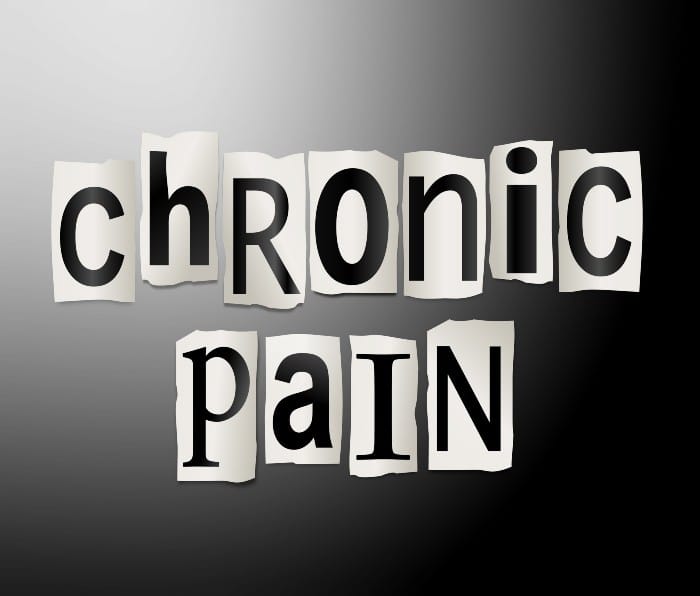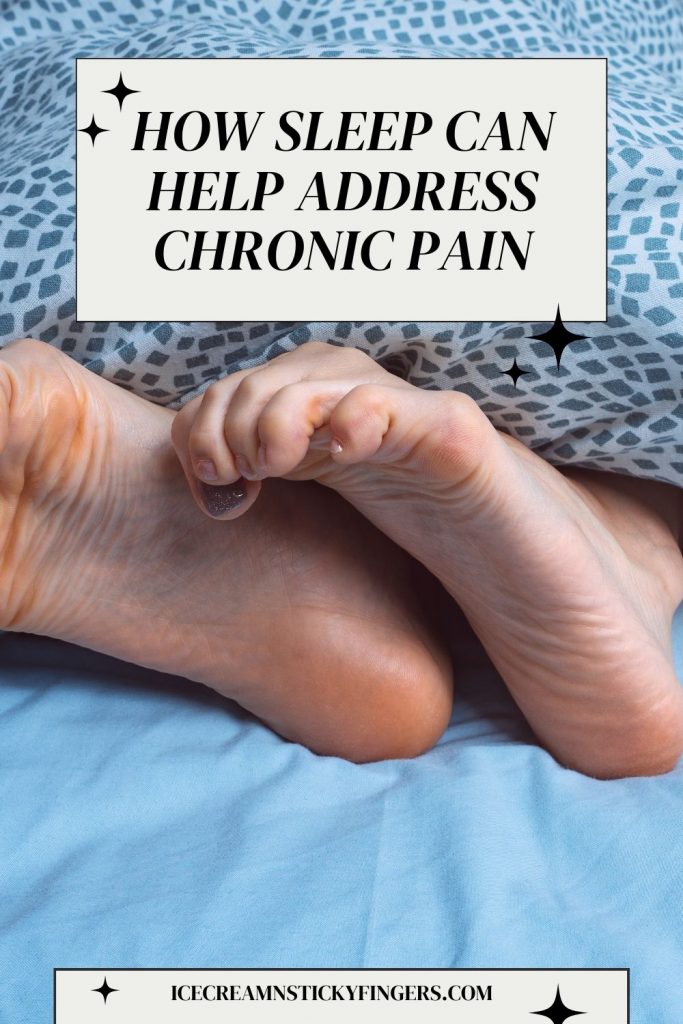Chronic pain affects millions of Americans. Conventional sources of chronic pain include degenerative bone diseases, like osteoarthritis or rheumatoid arthritis, an accident-related injury, or nervous system disorders. Whatever the reason for your symptoms of chronic pain, they’re probably keeping you up at night and preventing you from getting a good night’s sleep.

Tossing and turning as you try to find a comfortable sleeping position may take hours out of your sleep time. Individuals with severe chronic pain may experience bouts of insomnia that ruin their mental and physical state of well-being the following day. But it is important to try and get a good night’s sleep with chronic pain.
However, those individuals that do manage to achieve a good night’s sleep notice a reduction in their pain symptoms. As we sleep, our body clears toxins and free radicals from our bloodstream and neurological system. A reduction in these particles allows the body to regenerate cells and repair the physiological and neurological damage that is the cause of chronic pain.
The Sleep-Pain Relationship
Sleep is a complex and critical biological process with very little scientific research on the subject. Over the last decade, researchers conducted multiple studies into different areas of sleep and how it affects our physical and mental well-being.

Studies show that sleep is critical for clearing neural pathways of toxins accumulated during the daylight hours. Individuals that achieve 8-hours of sleep every night experience fewer pain symptoms.
Receiving adequate sleep assists every biological system. It helps the body generate new cells and improves cell communication. This fact is important to note for anyone living with the symptoms of chronic pain. Therefore, if you want to reduce pain symptoms, it’s vital that you receive enough rest.
Sleep Hygiene – Why it Matters
Falling asleep with back pain or hip pain is a tremendously challenging task. However, there are steps you can take to improve your ability to fall asleep. Stretching before bed and taking a hot bath are a few examples of sleep hygiene that reduce the time it takes for your mind and body to achieve a relaxed state and drift off to sleep.

Avoid Stimulants
If you enjoy a cup of coffee, limit your intake to the mornings. Avoid all stimulants during the afternoon and evening. Energy drinks are terrible for your health, and they affect your body’s ability to fall asleep. Drink herbal tea or water in the afternoon and avoid sugary foods that elevate your blood sugar.
Stretch Before Bed
Stretch in the hour before retiring to bed. If you experience muscular or skeletal pain, stretch these areas until you feel supple and relaxed. Stretching relieves stress from the skeletal and muscular system while clearing anxiety. Focus on your breathing and connecting your mind with your muscular and skeletal system while you stretch.
Bathing with Epsom Salts
Run a hot bath after your stretching session. Add a tablespoon of Epsom salts to the water and relax in the tub for 10 to 20-minutes. Your skin will absorb the magnesium in the water from the Epsom salts. Magnesium helps with cell communication and new cell generation. It provides relief to the nervous system and helps calm your mind. Pour a cup of chamomile tea before you get into the bath and sip on it as you relax.
Meditate
Meditate for a few minutes after your bath. Close your eyes and empty your mind of all thoughts. Focus on the darkness and breathe deeply. Meditation helps your brainwaves slow their frequency and reduces the time it takes to fall asleep.

Use a Sleep Mask
A sleep mask is a useful aid to block out all light and ensure the efficiency of your circadian rhythm. If you experience poor sleep the night before, you can use a sleep mask for taking naps during the day. While napping isn’t the best strategy, it’s sometimes necessary. Getting ample amounts of sleep should be included in your pain management plan.
The Final Thought – Consider Sleep Aids
Over-the-counter and pharmaceutical sleep aids may help you fall asleep faster. Speak to your physician about which sleeping aids will be beneficial to your unique situation. Sleep aids can be addictive or habit-forming so use them with caution. If OTC sleep aids aren’t helping, speak to your doctor because there are alternative treatments available.









I have had trouble sleeping so this sounds like something I can do to help relax before bed.
You really give such great information here, sleep is very under-rated! What our bodies do and how it ‘cleans’ itself up during sleep is fascinating! You hit the nail on the head!! I actually took a little valerian root last night for a deep sleep 😉
Ouch, I am sure this isn’t fun. My husband struggles with his sleep at times. He’s on some meds.
Sleeping is a healing time for our bodies. So I can see how it can help with pain.
This is all great to know. I have a friend with chronic pain. I’ll have to show her this.
need to try some stretches (and an epsom salt bath sounds wonderful too) for that sound sleep i need now
Some of my relative have chronic pain and it’s not easy to deal with it! Any advice that can improve their life is welcome!
Your article provided great insights into how adequate sleep can play a crucial role in managing and addressing chronic pain. I found the tips and strategies you mentioned for improving sleep quality to be practical and helpful.
We all need to rest, so I’m not surprised to see how beneficial sleeping can be.
This is a really great and very informative post, I’m surely going to take note of these tips
Sleep is really important it is when our body recover. This is so informative thanks for sharing this with us
Good sleep is so important to everyday health so it makes sense that it would help with pain. I’ve been wanting to really improve my own sleep.
Good sleep can certainly help with managing pain however I’ve been hit with the double-whammy and have chronic pain AND insomnia! Oh no!
I didn’t realize that sleep could be part of your chronic pain!
Great job on your article! You explained the connection between sleep and chronic pain in a clear and easy-to-understand way. The practical tips you shared for improving sleep quality are also helpful. Keep up the good work!
I am not sure why but my husband and his sister suffer from chronic pain. Bad genes? Not sure but if my husband sleeps well…he does seem to feel better each day and CBD helps him a lot. He is not nearly as bad as my sister in law…she has gone though so many surgeries and not sure that they helped at all. Some people are too quick to go under the knife.
Sleep can help in reducing any pain. However your article on how sleep can help address chronic pain is well-researched. I appreciate the insights provided and the practical tips for improving sleep quality. It’s great to see the connection between sleep and pain management emphasized!